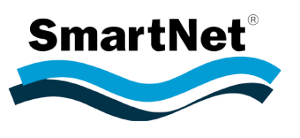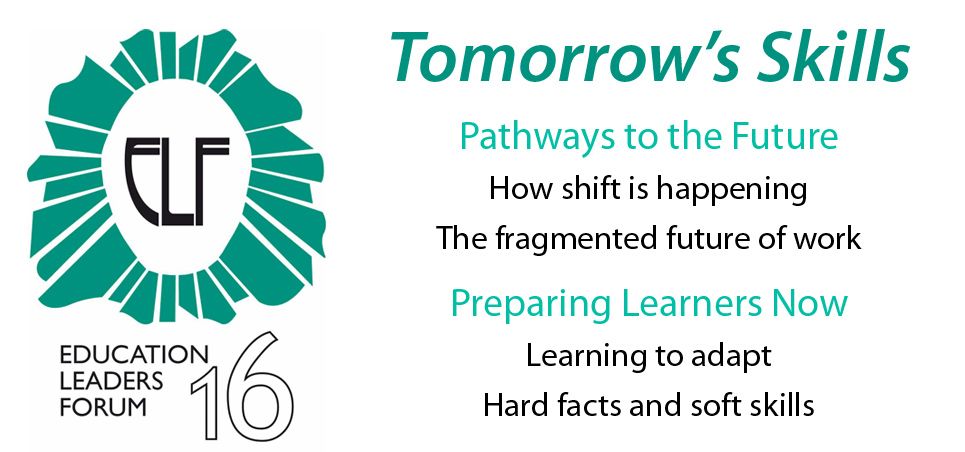| Day 1 – Tuesday 23 August | ||
| 8.15am | Registration, networking and coffee | |
| 8.45am | Starter | |
| 8.55am | Mihi whakatau | |
| 9.00am | Tomorrow’s Skills-The Big Picture
Weaving together the threads of lifelong skills development, employment and self-employment opportunities and sustainable economic growth through collaboration, creativity, innovation and productivity….More |
Hon Hekia Parata Minister of Education |
| 9.30am | Pathways to the Future
*How Shift is happening Keynote: Welcome to the Digital Revolution: Education in the Age of Disrupted Learning |
Ian Jukes Founder and Executive Director, InfoSavvy Group |
| 10.20am | Preparing Learners Now
How best can education leaders engage their learning communities in responding to the global and local trends impacting on education? Cheryl will describe what must become part of the fabric of every learning organisation in order to remain relevant. She will explore the implications for education and beyond, sharing the story of Haeata Community Campus, a Year 1-13 school being established in Christchurch….More |
Dr Cheryl Doig Leadership Futurist, Think Beyond |
| 11.00am | Networking Break | |
| 11.30am | *The Fragmented future of work Transformed Work: Creating a future ready workforce The key to navigating the future is developing flexible, resilient and high performing individuals and teams that are innovative and productive. This overview and short workshop provides practical resources to help education and business leaders navigate challenge of the future of work by creating a future-fit workforce….More |
Siobhán Hanley Director Potential, Work WellbeingNina Sochon CEO, Transformed Teams Joint authors of Transformed Work. |
| 12.30pm | Networking Lunch Break | |
| 1.30pm | *Learning to adapt Vocational Pathways–An overview of school-tertiary and school-industry partnerships Flexible models of school-tertiary and school-industry partnerships are providing better pathways for young people and more choice. The Ministry of Education is promoting alternative programmes and partnerships via the Youth Guarantee Programme to better meet the needs of senior students and the employment sector . These use key data to track and tailor programmes for specific people who are at risk of achievement failure. Communities of Schools are also collaborating and forming links with the wider community, including the world of work, to enhance the relevance of their learning experiences ….More |
Trevor McIntyre Secondary Tertiary Lead, Youth Guarantee, Ministry of Education |
| 1.45pm |
Panel: Case studies of facilitating successful transitions from school to further education, training and/or employment One of our tasks as educators and employers is to prepare young people, not just for our own workforce now, but for the workforce of the future, where the structure of work will be very different. What are we all doing to better prepare our young people for the challenges and opportunities of the future, and for jobs that don’t exist yet and that we can’t even imagine?
*What are the hard and soft skills that young people need to be armed with?
*What is the specific skill/transferable skill mix?
*What are some of innovative partnerships and programmes that are meeting the needs of both the young people and employers?
*What involvement are employers having with the design of the senior school curriculum, to ensure the skills students have are the ones employers need?
*What more needs to happen? ….More |
Huia Hanlen Secondary-Tertiary Lead Advisor, Auckland, Ministry of Education Jenny Baber Mark Hellyer, Peter Jones, Rod Gordon, MD, |
| 2.45pm |
Positive Education for Adaptability and Resilience
Dr Lucy Hone shares her experiences in designing and implementing evidence-based wellbeing and character education programmes in different school contexts, in alignment with the theories and practice of Positive Education. Having trained with Martin Seligman at the University of Pennsylvania (recognised as the founder of Positive Psychology and Positive Education), Lucy is currently working with several Christchurch schools. Sharing empirical and practical insights, she will focus on why understanding and promoting wellbeing is so important within schools, and guide us through best-practice for embarking on this journey. As adolescents prepare to enter the adult world the skills of resilience (cognitive, emotional and behavioural flexibility) will be among the most important lessons they can learn at school, giving them the necessary tools to cope with the challenges and changes in the years ahead….More |
Dr Lucy Hone Consultant, The 100 Percent ProjectAuthor of What Abi Taught Us |
| 3.30pm |
Networking Break |
|
| 4.00pm |
Concurrent Workshops |
|
| Workshop 1 |
Thinking in the Future Tense: Looking Back, Looking Forward As education leaders and practitioners we are driven by the tyranny of the urgent into focusing on short-term goals. Forced to operate in reactive mode we lose sight of what is important for the futures of our learners. To adequately prepare students now for their individual pathways to the future, we need to shift both our and their thinking. This high participation workshop will demonstrate “how to think in the future tense”. Thinking in future tense means bi-focally viewing educational policies and practices as a split screen, where one eye focuses on short-term goals and the other eye focuses on the future. Participants will discover what it means to think in future tense; how this technique applies across the learning spectrum from early childhood to post tertiary education and training; and why it is so important that our current educational paradigms respond to the challenges of the modern world so we can prepare both ourselves and our students for the world of tomorrow. |
Ian Jukes Founder and Executive Director, InfoSavvy GroupNicky Mohan Managing Partner, InfoSavvy Group and co-author of Reinventing Learning for the Always-On Generation |
| Workshop 2 |
Pathways for the Future The world is shifting, driven by the key trends of globalisation and technology. In order to thrive as *learning communities and as a planet we need to work together and be able to take responsibility for ourselves. It requires us to think more of ecosystems and leadership rather than single cells and leaders. Our work is increasingly ambiguous, and change is increasingly exponential rather than linear. Adaptive leadership is needed for such complex times. Collaboration is a key competency for adaptive leadership, but isn’t as easy as it sounds. It’s not enough to design new workspaces and schools to be more flexible physically; and it’s not enough to put people in teams, clusters or communities and expect magic to happen. Collaboration requires the intentional development of soft skills – and that is hard work! This workshop will explore some examples of diverse organisations working together in ways that couldn’t be achieved alone. This is about pushing the boundaries, emergent practice and outwards mindsets. |
Dr Cheryl Doig Leadership Futurist, Think Beyond |
| 5.30-6.30pm |
Networking Drinks and Nibbles
|
|
| Day 1 programme ends Print Programme |
||
| Day 2 – Wednesday 24 August |
||
| 8.15am | Registration, networking and coffee | |
| 8.45am | Starter: A Business View of Tomorrow’s Skills | Kirk Hope Chief Executive, BusinessNZ |
| 9.00am | Laying the foundations for tomorrow’s skills from early childhood onwards
The World Economic Forum Future of Jobs Report 2015 points out that, workplace, technical skills will need to be supplemented with strong social and collaboration skills. Developing the appropriate mix of social and cognitive skills needs to happen at all stages of the Early Childhood, Primary and Secondary learning journey to enhance lifelong learner achievement….More
|
Karl le Quesne Associate Deputy Secretary (Early Learning and Student Achievement), Ministry of Education |
| 9.30am |
DIY Gaming: Developing soft skills as well as technical skills Workshops for pre-teens in computer coding and game making develop technical skills as well as the soft skills employers are looking for: creativity, team work, time management etc. The transferable skills developed by such activities in modern learning environments will eventually flow over into modern earning environments and enhance work satisfaction and productivity….More |
Dan Milward Director, Gamefroot |
| 10.10am |
Project Based Learning – STEM in Industry
Case Study One: EVolocity Year 9-13 students participate in exciting electric vehicle building projects, with the help of industry mentors….More Case Study 2: Mission to Mars Case study 3: ShadowTech for Girls
This initiative gives girls more insight into opportunities in ICT and Engineering both in the immediate and medium term future….More |
Miranda Satterthwaite STEM Co-ordinator, Ara Institute of Canterbury |
| 10.50am | Building Financial Capability Building the financial capability of New Zealanders is a priority for government to help improve the wellbeing of families and communities, increase investment, and grow the economy. Giving all school students the opportunity to develop this capability is critical for work readiness and managing debt and savings decisions across a lifetime.Angela will make the case for curriculum change based on insights from the Commission’s research and Sorted Schools project. |
Angela Clemens Education Manager, Commission for Financial Capability |
| 11.00am | Networking Break | |
| 11.30am | Pathways to a Skilled Future – Managing transitions from education to employment
The Industry Training and Apprenticeships sector in New Zealand has been working with the government to establish vocational pathways for students. These are designed to help students navigate the journey between education and employment by making clearer links between educational choices and the world of work….More |
Josh Williams CE, Industry Training Federation |
| 12.00pm |
Flexibility of funding models To enable more successful transitions between formal education, further education and training and employment, the funding system needs to be flexible. A synopsis of what TEC is doing to ensure flexibility of funding models for a range of innovative programmes which better meet the needs of both school leavers and employers….More |
Tim Fowler CEO, Tertiary Education Commission |
| 12.30pm |
Career Ready – Challenge and Opportunity The education and employment landscape continues to rapidly evolve providing us with more and more complex challenges and some great opportunities to prepare for very different career futures. Keith Marshall gives an insight into how we can think about ensuring people are career ready in our rapidly evolving future.….More |
Keith Marshall Chief Executive, Careers NZ |
| 1.00pm |
Networking Lunch Break |
|
| 2.00pm |
Student attitude and engagement in New Zealand Schools The Student Attitude and Engagement Survey (SAES) is designed to investigate student attitudes and school-wide trends that have an impact on student achievement and engagement. The comprehensive online feedback can inform the evidence-based decision making process, help with target setting and strategic planning, explain the trends in achievement data….More |
Director NZCER Psychometric Assessor CEM (NZ) – Centre for Evaluation & Monitoring, UC
|
| 3.00pm | Making a real difference: What the Maker Movement looks like when it touches down in rural NZ
Overview: Fab Labs are globally networked maker spaces equipped with digital technology to build a toolkit of skills, realise ideas and innovate. – Bring your own device (with mouse) |
Kirsten Browne & John Hart Co-founders, Fab Lab Masterton |
| 3.00pm | 2. Shakers Forum: An open forum for those not taking part in or observing the Makers Workshop
-Articulate your views on themes raised at ELF16 -Introduce resources that may be of interest to fellow participants Pass in your name and topic to Sue Mardon on the registration desk before 1.30pm on Wed 24th. |
|
| 3.45pm |
Where to now?
|
|
| 4.00pm |
Forum Concludes |
|



